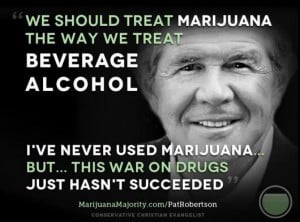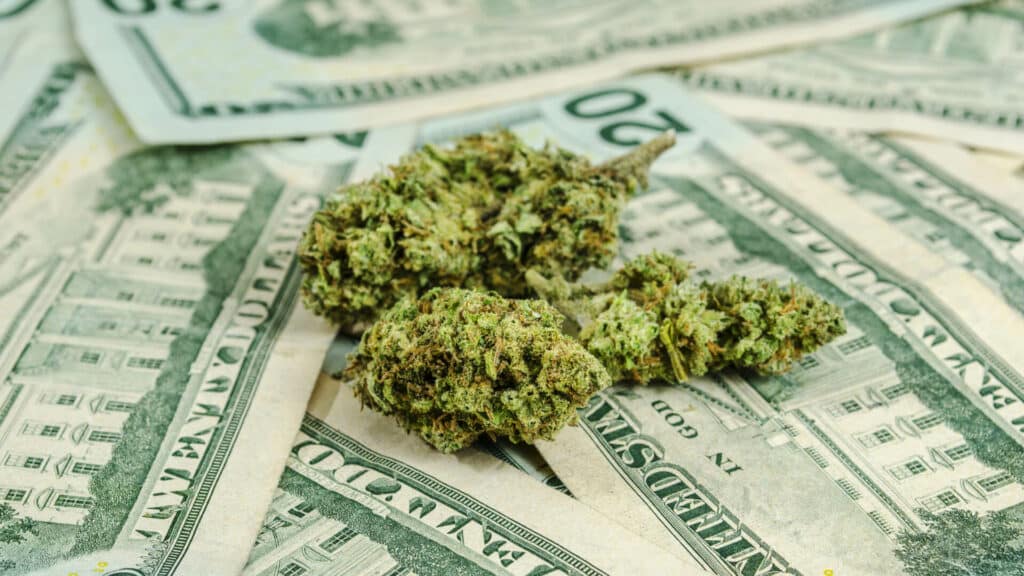 Remember When Opposing The Drug War Was a Political Liability?
Remember When Opposing The Drug War Was a Political Liability?
Ending any war has a huge payoff as the affected populations get back to business.
Americans, across the political spectrum and not just venture capitalists and educated digerati, are particularly fired up about the $40 billion Drug Peace dividend many economists foresee. Want proof? Cannabis got more votes than President Obama in Colorado in 2012. Forty percent of Colorado Republicans voted to legalize the plant. Furthermore, Jon Walker of justsaynow.com crunched some numbers and found youth turnout in 2012 was up 12 percent and 6 percent in Washington and Colorado compared to 2008, versus 1 percent nationally. I think of that as the “duh” statistic.
Even in my remote and conservative New Mexico valley, where the average octogenarian and I wait in line alongside at the post office is wearing a cowboy hat and believes Barack Obama was born in Libya because Rush told her so, ending the Drug War is a no-brainer. One such lady, Meg, spied me the other day as the writer whose ridiculously oversized American truck looks right but smells suspiciously progressive (the exhaust is in fact Kung Pao Chicken grease). She asked me what my new book is about, and I breathed deeply and replied, “It’s an economic argument for ending the failed War on Drugs by removing cannabis from the Controlled Substances Act entirely and letting states regulate it like alcohol.” Without pause Meg came back with, “‘Bout time. Pills’re the problem. Ask my cousin Ben. Fightin’ pot just keeps those dang cartels in business.”
This lady missed Woodstock, people. And I have to say it’s a relief to have folks like her, Ronald Reagan’s Secretary of State George Shultz and televangelist Pat Robertson aboard the peace train. I want as much company as possible on this one. Empowers me to speak the truth in mixed company.

It’s hardly ever mixed anymore, though. Nationally, a solid (and increasing) majority of Americans, eighty percent of us (imagine eighty percent of Americans agreeing on anything) support medical cannabis, and fifty-six percent are for full cannabis legalization. And those numb
, city: America knows. Outside of various war frenzies, I’ve not witnessed anything like this kind of cross-platform agreement in my twenty years of journalism. We’re increasingly united on this one.ers are climbing every time a new poll comes out, particularly among women. Left wing, right wing, old, young, heartland
In fact from what I’m seeing from touring from Missouri to Arizona and on both coasts, fifty-six percent Drug Peace support sounds about twenty percent too low. I mean, you know you’re winning when the Houston Chronicle, as it did on November 9, 2012, runs an editorial that reads in part: Our country has waged a War on Drugs for forty years, and the only winners seem to be cartel lords and private prisons. Two states have come up with a new plan. Let’s see if it works.”
Internationally it’s the same. A Portuguese magazine writer who called me from Lisbon the other day to see if I was aware that the international Drug War was over due to “America’s leadership role” in the 2012 election. The world, in other words, is aware that the social re-legalization of cannabis was a watershed event and represents a sea change in the course of the now forty-one-year-long conflict (seventy-five, actually, in the case of cannabis).
The Drug Peace movement is not a coastal or a liberal one. It is a patriotic one. In fact, watch for Missouri, Ohio, California, Oregon, Alaska, Rhode Island, Illinois and a half dozen other states to declare peace by 2016. The drug warriors don’t know where to regroup. They’re losing everywhere. In Richard Nixon’s home base, Orange County, California, I visited a senior heavy cannabis collective where cannabis wasn’t about politics: it was about getting lives back following bouts of cancer or debilitating arthritis.
This is how federal alcohol prohibition ended as well: too many states to ignore spoke the truth. It disappeared nearly overnight, and much sooner than most experts predicted. Bootleggers lost their market, as Mexican cartels soon will. Yes, yes, naysayers, I know the cartels have diversified. Is that any reason not to cut off up to 70% of their narco profits while putting American small farmers back to work?
As a parent, what I learned incontrovertibly from studying this war is that the single policy move that will most increase public safety around my ranch is legalizing cannabis and thus ending border drug violence. Make no mistake: ending federal cannabis prohibition ends the Drug War.
So important, so game changing and irreversible are these recent poll victories, that some of us still-lucky-to-live-in-a-democracy Americans find ourselves almost unable to grasp what a giant leap closer we are to hostilities ending (and on pretty much our best-case terms). You know how people initially react to grief with denial? Sometimes they react the same way to unimagined success. One colleague called me from Colorado a week after the election to say, “It just hasn’t sunk in yet. Did we really just win the freakin’ war?”
And thus do our overcrowded prisons begin to empty. Even with the Drug Wat’s Berlin Wall down, though, it is still a bit – only a bit — premature to call the federal Drug War a paper tiger. I’ll leave that for the third, no doubt hemp edition of Too High to Fail that I keep lobbying my publisher to consider. All might be getting quieter and quieter on the Western Front — the Obama Justice Department (wisely) stayed mum in advance of Colorado and Washington’s legalization votes — but in order for the peace side to declare total victory, cannabis must be entirely removed from the Controlled Substances Act, to allow states to regulate the plant as they wish.
Why? Well, more than 850,000 people were arrested for cannabis in the U.S. in 2011. The vast majority were otherwise law-abiding citizens. That’s one life ruined every 19 seconds until federal law changes. I met one at a Too High to Fail live event: 22-year-old Chris Diaz had just served 9 months in Texas (including 111 days in solitary confinement) for bringing a half ounce of his asthma medicine into the Lone Star State while visiting relatives. A meek kid profoundly shaken by prison, he told me that during his parole in Texas, he was forced to return to the expensive and ineffective pharmaceutical remedies that had driven his doctor to recommend medical cannabis in the first place.
And that’s just stateside. It’s still too dangerous for me to visit the gorgeous canyons of nearby Chihuahua state, formerly an annual pilgrimage.
Will the war end during Obama’s second term? Let us hope. Better, let us call our representatives, with great dispatch and passion. As last weeks hemp legalization vote in the U.S. House of Representatives shows, they’re suddenly listening.
This column, and all of Doug Fine’s Drug Peace Bumblebee columns, are originally published on the National Cannabis Coalition’s website. Make a donation to keep the activism, research and education going. Text NCC to 420420 to keep up-to-date on the latest developments.
Doug Fine, bestselling author of Too High to Fail: Cannabis and the New Green Economic Revolution, is one of the world’s few investigative cannabis journalists. As such, he meets folks from Hawaii to Laos who, until federal and worldwide prohibition finally ends and the professional conventions begin, are unlikely to meet one another. He’s a pollinator of Drug Peace ideas, in other words, a bumblebee. Each week in this column you’ll hear another cannabis story from around the planet. Doug’s work from five continents is at: www.dougfine.com. Follow him on Twitter at and on Facebook.





